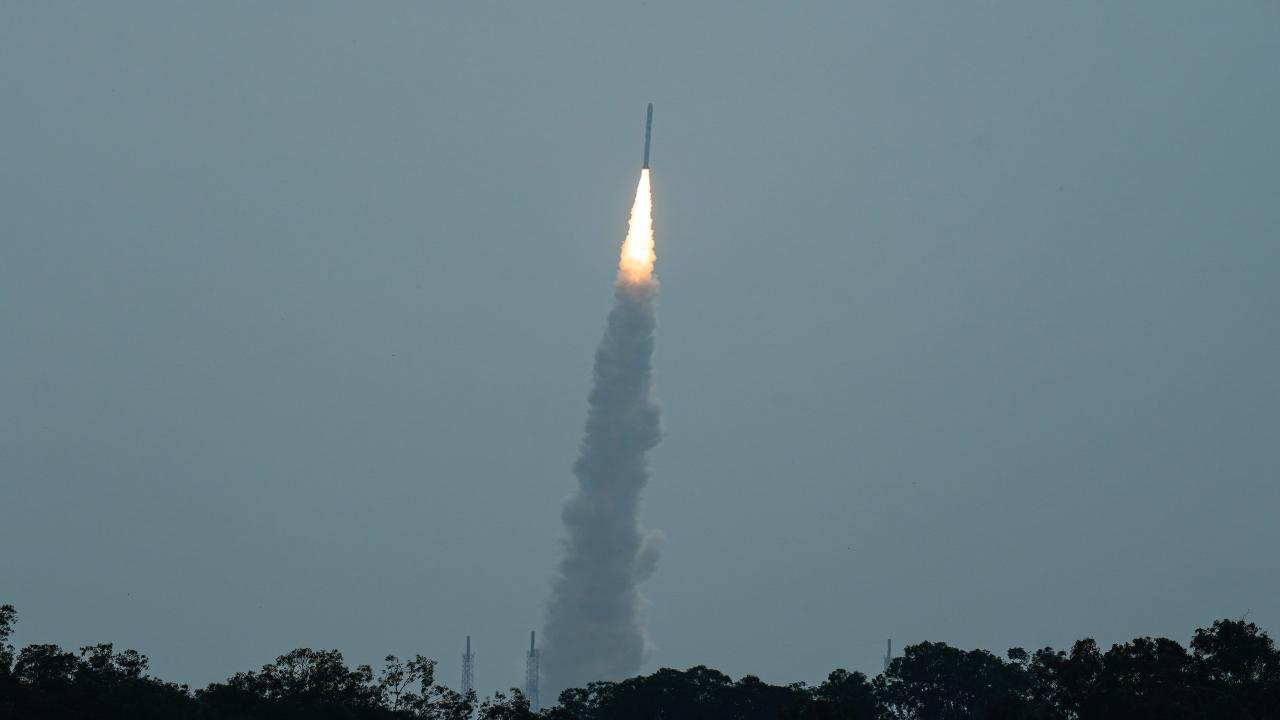Home / News / India News / Article /
ISRO launches earth observation satellite on final developmental flight
Updated On: 16 August, 2024 09:22 AM IST | Sriharikota | mid-day online correspondent
ISRO on Friday launched its third and final developmental flight, Small Satellite Launch Vehicle-D3, carrying Earth Observation Satellite EOS-08. The rocket lifted off from the first launch pad at the Satish Dhawan Space Centre in Sriharikota, Andhra Pradesh at a pre-fixed time of 9.17 am

The objectives of the mission include designing and developing a microsatellite and creating payload instruments compatible with the microsatellite bus, ISRO said. Pic/PTI
The Indian Space Research Organisation (ISRO) on Friday launched its third and final developmental flight, Small Satellite Launch Vehicle-D3, carrying Earth Observation Satellite EOS-08.
The rocket lifted off from the first launch pad at the Satish Dhawan Space Centre in Sriharikota, Andhra Pradesh at a pre-fixed time of 9.17 am.



